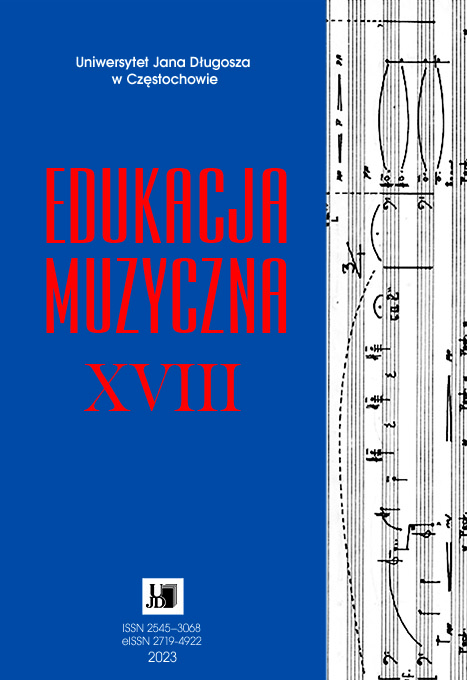Operas by Mykola Lysenko in the Context of Romantic Slavic Schools of the 19th Century
Operas by Mykola Lysenko in the Context of Romantic Slavic Schools of the 19th Century
Author(s): Luba KyyanovskaSubject(s): Music
Published by: Uniwersytet Jana Długosza w Częstochowie
Keywords: national opera; Slavic culture; Romanticism; Mykola Lysenko; passionarian personality;
Summary/Abstract: For the dissemination of historical memory or the portrayal of national myth, opera was the most appropriate instrument. Romanticism was a period during which many of Europe’s national identities were formed. The primary function of the opera at the time was to return to national mythology and history. The focus of this contribution are the operas by Mykola Lysenko (Миколa Лисенкo, 1842–1912), the founder of the Ukrainian school of composition. These works, which are largely unknown in Poland, represent an interesting interpretation of the principles of the genre of the Romantic opera. They are based on folk mythology and historical themes, typical of many Slavic schools of composition.The article discusses Mykola Lysenko’s role among the representatives of the Slavic opera. Emphasis is placed on the importance of his work seen as a symbol of the ‘national spirit’, reflected in the content of the opera through the incorporation of historic traditions and myths, customs, folk rituals, etc. The article also compares Lysenko’s operatic oeuvre with the national opera genre in the legacy of artists belonging to other Slavic national schools: in Poland (Stanisław Moniuszko), the Czech Republic (Bedřich Smetana, Antonín Dvořák) and Russia (representatives of ‘The Five’, mainly Modest Mussorgsky, Alexander Borodin and Nikolai Rimsky-Korsakov). Attention is drawn to several common features common to most composers of the Slavic schools of opera, such as: — synthesis of the ‘general European technique’ of composition with national tradition;— remarkable range of themes and genres related to national themes (often with a folkloric flavour expressing these themes in a multitude of ways, using the widest range of varieties and genre models of the opera);— fusion of folk themes with generally accepted forms and means of expression in professional music of the period, prevalent in the Romantic style and post-Romantic influences.
Journal: Edukacja Muzyczna
- Issue Year: 2023
- Issue No: 18
- Page Range: 137-171
- Page Count: 35
- Language: English

